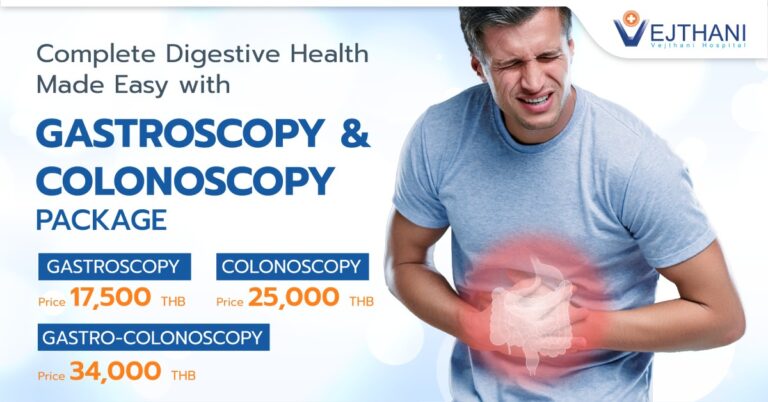
Health Articles
Understanding Gastroesophageal Reflux Disease (GERD)
Have you ever experienced this burning, often painful feeling in your chest that can sometimes be scary? Most often, this sensation is caused by a heartburn. This is not really about the heart, so you need not worry that you may have a heart condition. If you are having this symptom more than twice a week, you may possibly have GERD. Although most people occasionally experience acid reflux, it doesn’t necessarily mean that they have GERD. There are a lot of symptoms, aside from heartburn, that can be associated with GERD.
What is GERD?
Also known as gastroesophageal reflux disease, gastrointestinal reflux disease or acid reflux, it is a disorder that results from stomach acid moving backward from the stomach into the esophagus. It happens when a muscle at the end of your esophagus, known as the lower esophageal sphincter, opens at the wrong time or does not close properly. This allows stomach contents to leak back or reflux into the esophagus and irritate it. It poses a potential problem if left untreated because, over time, the reflux of stomach acid damages the tissue lining of the esophagus causing inflammation and pain. Long-lasting untreated GERD can lead to permanent damage of the esophagus and sometimes, even cancer.
What are the causes of GERD?
There are many causes of GERD and it can be different for everyone. But it is generally caused by the relaxation of the lower esophageal sphincter that opens to allow fluid to pass into the stomach and closes to prevent food and stomach acid from flowing back into the esophagus. Constant exposure of the esophagus with the acid that backflows from the stomach damages the esophageal lining over time.
A hiatal hernia also causes GERD. A hiatal hernia happens when the upper part of the stomach bulges into the diaphragm. The diaphragm helps the lower esophageal sphincter (LES) keep the acid in the stomach. When a hiatal hernia is present, the acid could easily come up, thus, reflux happens.
Other factors that may contribute to GERD include:
- Alcohol use
- Obesity (overweight)
- Pregnancy
- Smoking
What are the signs and symptoms of GERD?
- A burning sensation in your chest (heartburn), sometimes spreading to the throat, along with a sour taste in your mouth
- Chest pain that may mimic angina
- Difficulty swallowing (dysphagia)
- Dry cough
- ENT symptoms: hoarseness or sore throat, sensation of a lump in the throat, frequent throat clearing
- Nighttime asthma
- Regurgitation of food or sour liquid (acid reflux)
How is GERD diagnosed?
- Upper Gastrointestinal (GI) Endoscopy It allows our physician to examine the inside of a patient’s esophagus, stomach and duodenum (the first part of the small intestine) with the help of a thin flexible lighted tube called endoscope.
- Esophageal Manometry This is a test that measures pressure within the esophagus. It measures the rhythmic muscle contractions (peristalsis) that occur in your esophagus when you swallow.
- Barium X-rays (Upper GI Series) These are diagnostic x-rays used to diagnose abnormalities of the digestive tract. A series of x-rays will be taken after you have swallowed a barium suspension which coats the upper gastrointestinal wall.
- Esophageal PH monitoring This is a procedure that measures the reflux (regurgitation or backwash) of acid from the stomach into the esophagus.
What are the treatments for GERD?
- Lifestyle modification
One of the simplest treatments for GERD is having a change in lifestyle. Position plays a big part in minimizing reflux events. Don’t lie down within 3 hours of eating. That’s when acid production is at its peak. So plan early dinners and avoid bedtime snacks. You should also be watchful of how you eat. Avoid large meals, especially late in the day. Try to make your main meal the mid-day meal. Common beverages also such as coffee (both caffeinated and decaffeinated), tea, cola, tomato juice, and citrus juice may aggravate symptoms by irritating the esophagus or stimulating stomach acid production together with fatty foods, onion, and chocolate. So it is better to start reducing intake of these foods. And if you are overweight, you should start slimming down to prevent acid reflux. - Prescription medication
There are certain medications that help control either acid reflux or acid production. H2 blockers reduce the amount of acid produced in the stomach. They also allow esophageal healing in about 50% of patients. Proton pump inhibitors (PPIs) limit acid secretion in the stomach. 80-90% of patients experience esophageal healing after being prescribed by this medication. Foaming agents, such as GAVISCON, work by covering your stomach contents with foam to prevent reflux. These drugs may help those who have no damage to the esophagus. - Surgery
Surgery is an alternative treatment that is generally applied when long-term medical intervention is either ineffective or undesirable, or when certain complications of GERD are present. The Nissen Fundoplication is one of the procedures done to strengthen the valve muscle between the stomach and the esophagus preventing stomach acids from being forced back up into the esophagus.
Conclusion and Recommendations
Untreated GERD can lead to life-threatening condition such as cancer so it is best to seek medical attention early in the course of the disease. If the condition is already worse, it is advised to seek surgical intervention in trusted healthcare institutions.
The Gastroenterology and Hepatology Center at Vejthani Hospital comprises of a team of highly qualified specialists trained both locally and internationally who are expert in the field of gastrointestinal and liver disorders such as the Gastroesophageal Reflux Disease. With the expertise that our physicians have together with the comprehensive approaches in diagnosing such diseases and the sophisticated treatments offered here, you can be rest assured of the quality of care given here at Vejthani Hospital.

























